Rachel Chinouriri: 'England's my home, even if I've felt unwelcome'
- Published
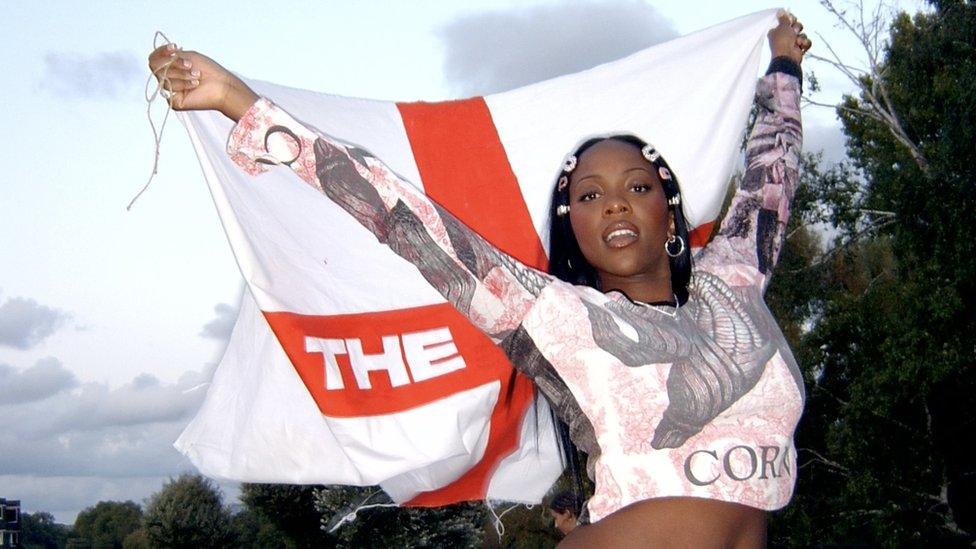
To some, the St George's Cross can be seen as a symbol of oppression but Rachel wants to reclaim the flag
Ahead of her debut album's release next month, Rachel Chinouriri is prepared for people to have questions about its artwork.
"Your first reaction, especially if you're black seeing that, might be like, 'What on Earth is she doing'?," she tells BBC Newsbeat.
The singer's talking about the England flag, which features prominently on the cover.
Rachel includes herself among those people from minority backgrounds who have a complicated relationship with the St George's Cross.
Some would argue it has come to symbolise oppression or racism. But Rachel says she's determined to reclaim it.
Born in London to Zimbabwean parents, the 25-year-old tells Newsbeat her upbringing hasn't been without its challenges.
"I have had lots of things with racism and discrimination in the UK but I still feel like the UK is my home," she says.
"Even though there were points I felt really unwelcome."
Rachel's been releasing a steady stream of singles and EPs since 2018 and her upcoming debut album, What A Devastating Turn of Events, explores the idea of home.
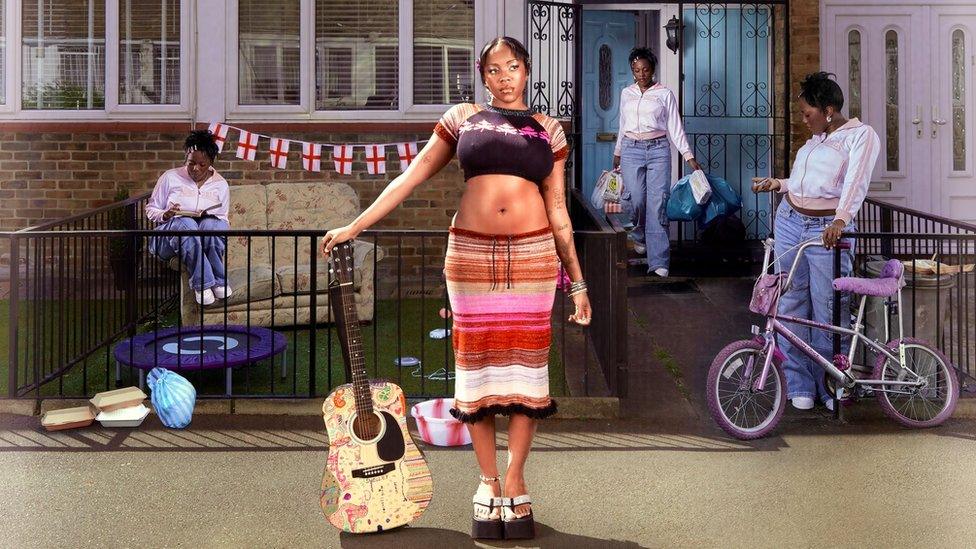
The cover of Rachel's album features England flag bunting, outside a London flat like the one she grew up in
"It definitely reflects my upbringing, my home, my life," Rachel says of the location for her album shoot.
Pictured in front of a London estate just like the one she grew up in, she says the photos are "like a snapshot of my entire life".
"Me standing in front of it all and standing in front of the memories - I think there's an element of ghosts in a house."
With the Y2K fashion, the bike and trampoline, Rachel says the artwork sought to reflect the nostalgia she felt for a time when she was "young and carefree" while writing the album.
But it was the bunting that caught people's attention and Rachel says she knew when she decided to include the England flag it would cause a stir.
"I think there's an element of seeing that flag that definitely holds a connotation, especially when there's black people involved with it," she says.
'A symbol'
Prof Kehinde Andrews is a professor of Black Studies at Birmingham City University and has previously spoken about the symbolism of the St George's Cross.
During a 2018 appearance on Good Morning Britain, external, he clashed with presenter Piers Morgan and Brexit campaigner Nigel Farage when he argued the flag had been co-opted by the far-right and had become a racist symbol.
Prof Andrews says seeing the flag can indicate a "no-go area" for minorities.
"To me, the St George's cross means danger normally.
"This flag became a symbol," he says. "If it's on a pub or something then you stay away."
Speaking about Rachel's album artwork, he says he would "question why anybody want to reclaim something which is so connected to whiteness".
"Why are we claiming to belong to something which doesn't want us?," he says, citing health and pay as examples of inequalities still affecting black and minority communities.
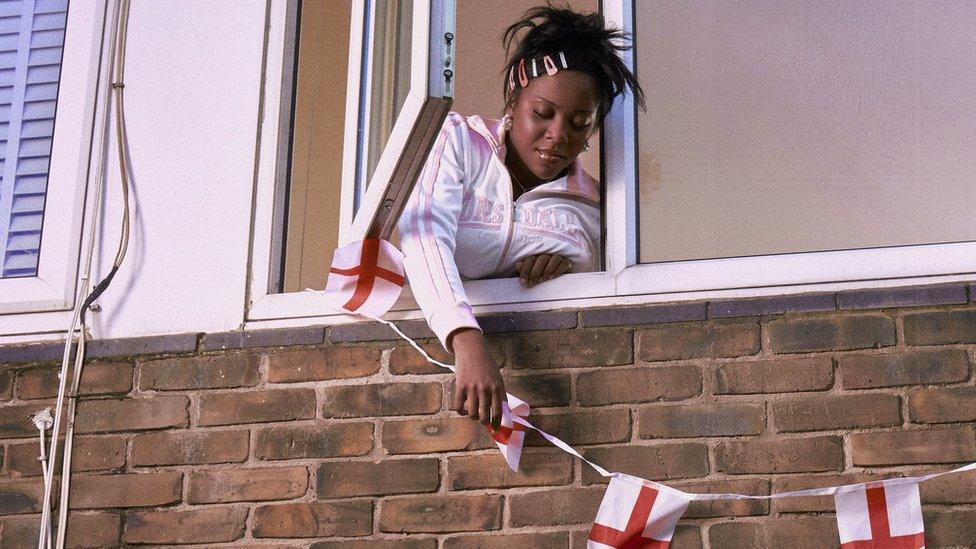
Rachel says it's fair enough for people to challenge her creative choices
Rachel was prepared to be challenged on her decision to include the flag.
"I had zero hesitation when I decided to reference it," she says.
"My team were definitely like, 'Are you sure you want to do that?'
"Once I explained it, they understood it and I think once it all came together, it was quite powerful and impactful."
A BBC study in 2018 found that there was a large disparity between white and minority communities when it comes to pride in their English identity.
"Black and POC people have contributed to the culture so much," Rachel says.
"It's difficult because we're celebrated when we do well in things like football, the Olympics, or sports.
"But then on another day, when that's not happening, those flags represent a very different thing."
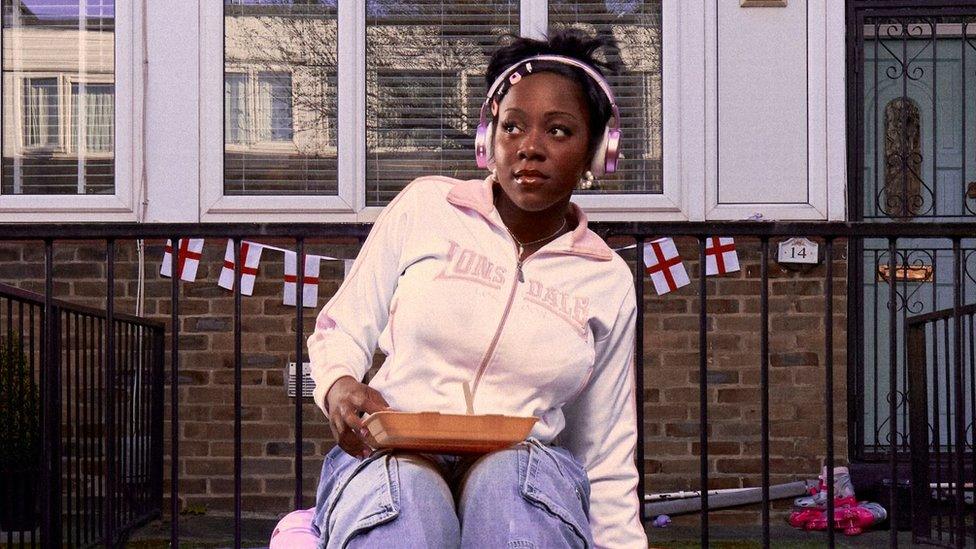
Rachel's album is "quite nostalgic" about her upbringing, she says
Prof Andrews says a prime example of this is the racist abuse directed at Marcus Rashford, Jadon Sancho and Bukayo Saka after they missed penalties in the men's Euro 2020 final.
"We like to pretend [the flag] is unity and all these things, but it's not that," he says.
"When three black players miss penalties, you see all the racism comes in.
"Don't wave no flag for a country that doesn't have your best interests at heart.
"That's a big issue for me."
Rachel acknowledges the criticism but says "if art kind of makes you turn your head a little bit it's doing the right thing".
"And then when you listen to the music and understand what I'm saying, it makes you think of things in a bit of a different way."
She says there are "traumas and troubles that you can have growing up being black in the UK".
"But still, there are things to celebrate about being a black Brit."
Rachel describes her album, released on 3 May, as "almost like a trauma dump" as she confronts that legacy.
"By the end, there's definitely a healing element to it," she says.


- Published22 March 2024
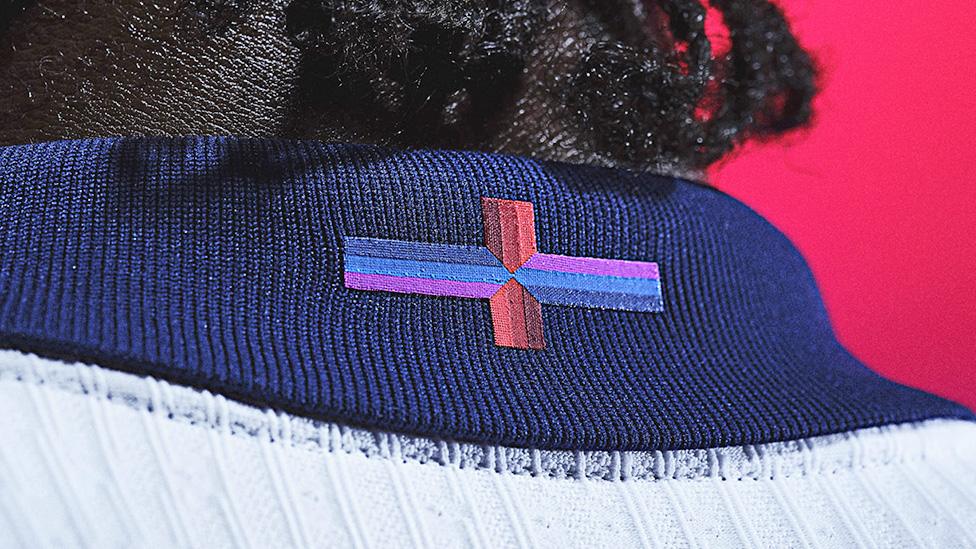
- Published13 March 2024
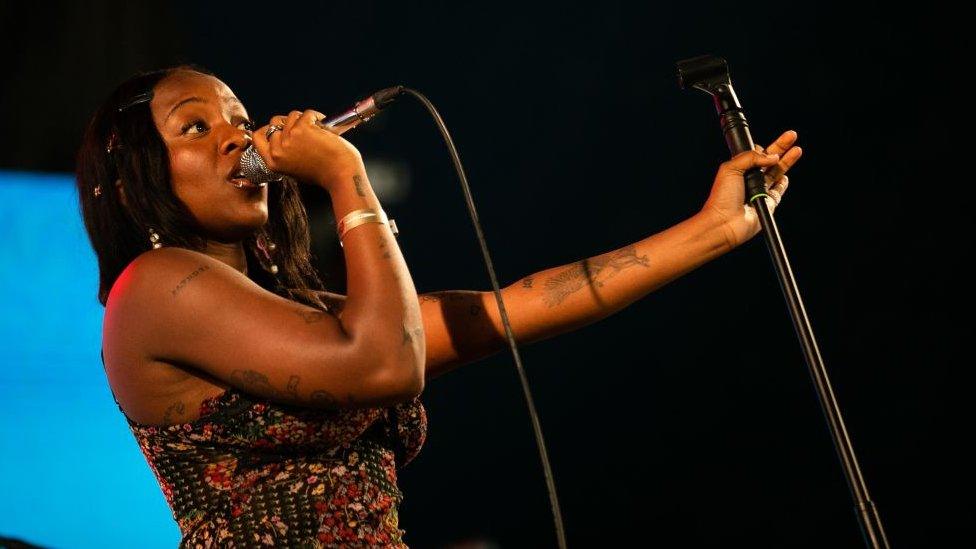
- Published26 January 2023
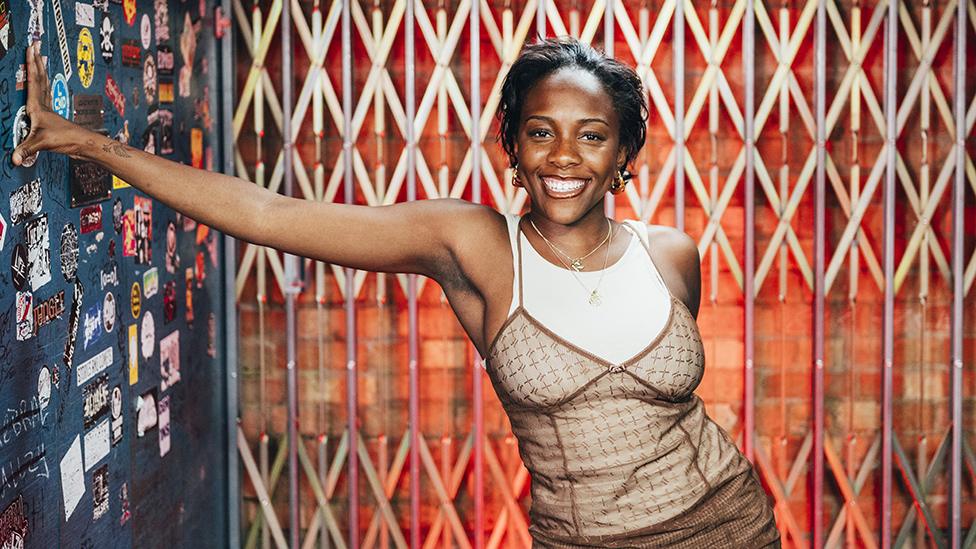
- Published23 January 2023
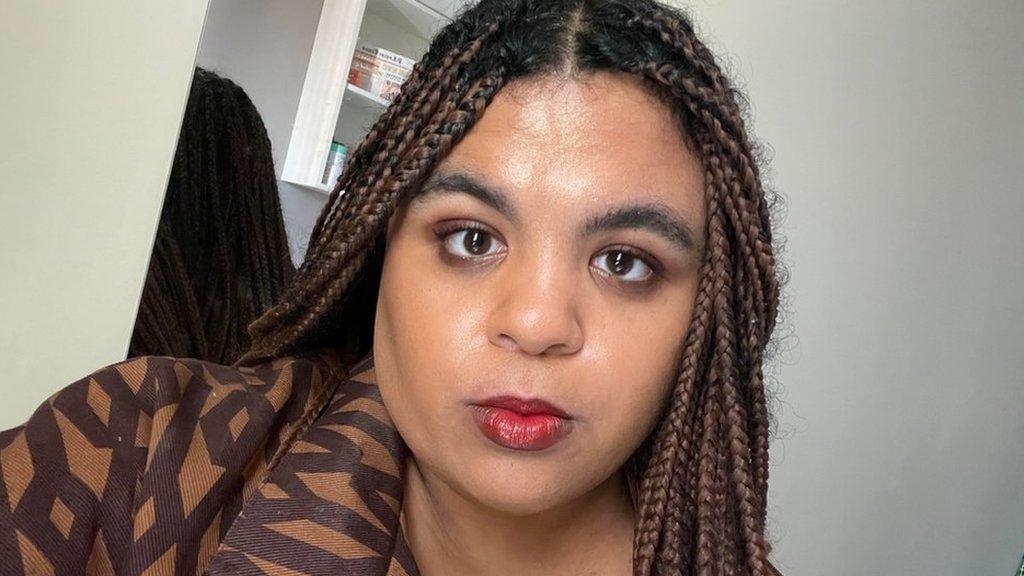
- Published14 February 2022

- Published20 October 2020
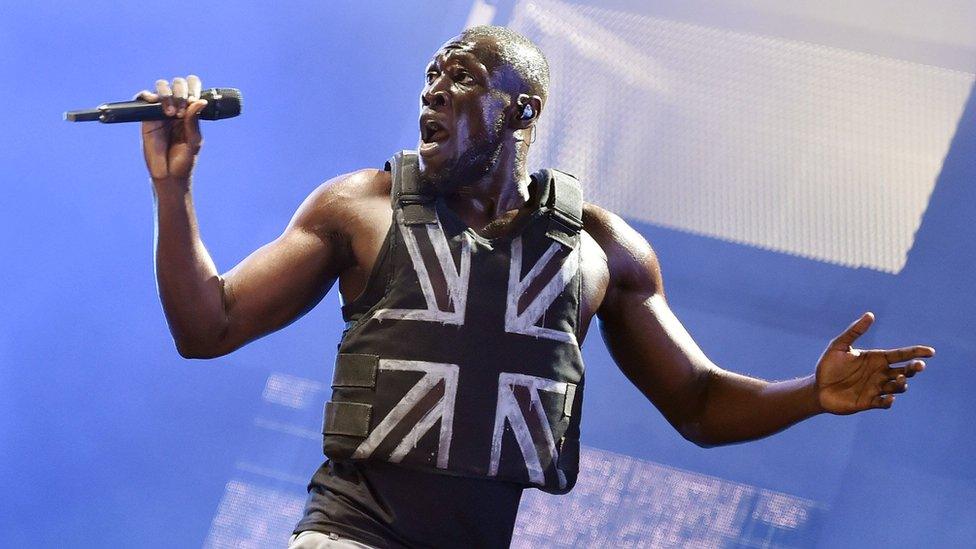
- Published3 June 2018